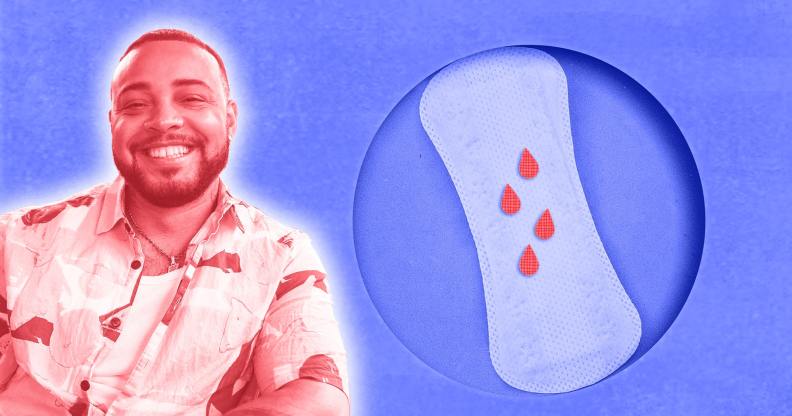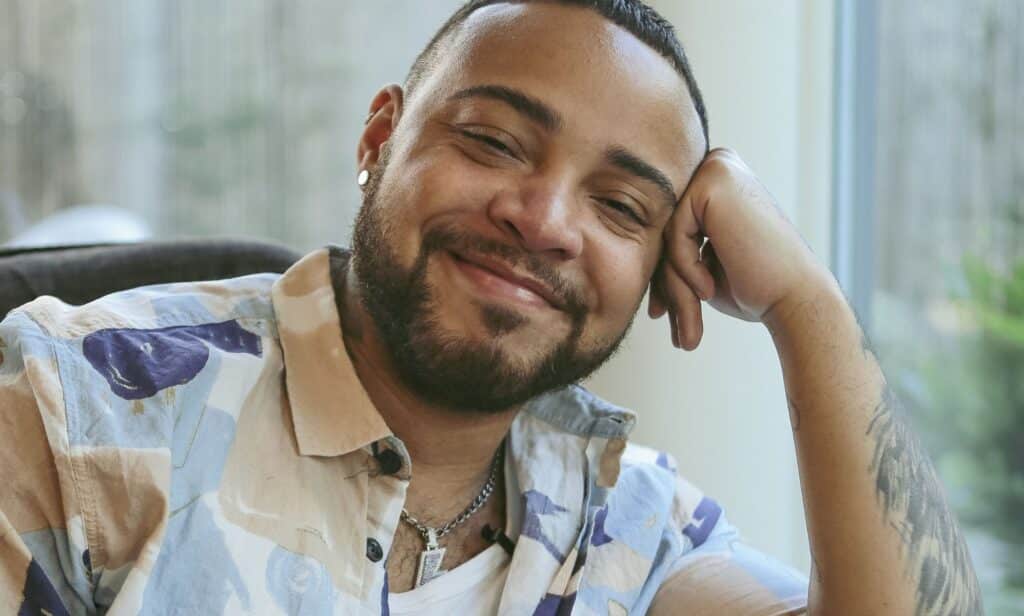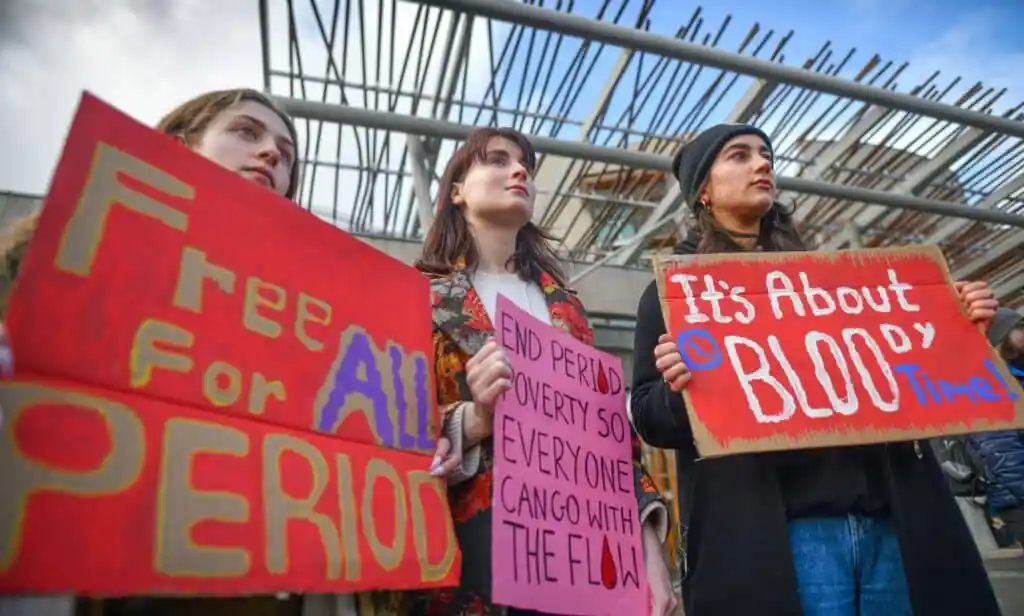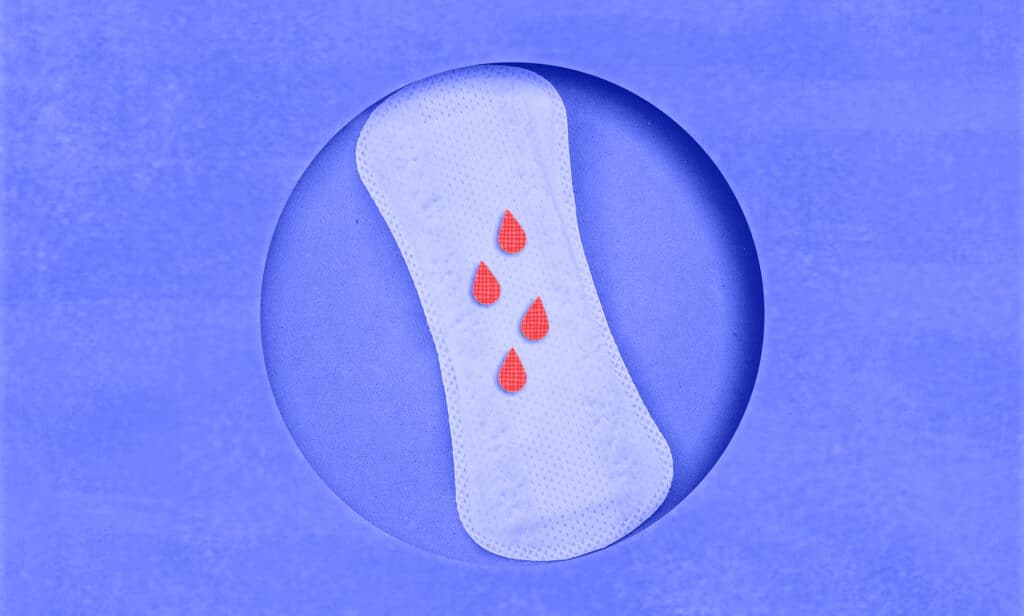Activist explains why trans and non-binary voices absolutely need to be heard on period poverty

Trans activist Kenny Ethan Jones shares why trans, non-binary and gender expansive people need to be included in discussions on ending period poverty. (Estrid/Getty)
Kenny Ethan Jones made history as the first trans man to front a period campaign in 2018.
The role kickstarted his career in menstruation, body politics, mental health and intimacy activism with a focus on seeing how trans people can be featured in discussions about these subjects.
Jones tells PinkNews that his career has been a “journey of self-discovery”, and has meant he’s been able to share the messages he wished existed when he was younger.
He recalls how he felt “so disconnected” from himself when experienced his first period as there was an almost total lack of trans-inclusive period information.
“These products didn’t refer to me so [I felt like], ‘Should I be experiencing this?’, ‘Am I normal?'” Jones says.
“That caused such a disconnection with my body which left me feeling disconnected from myself, affected my self-esteem, affected the way I moved through the world.”
He describes how navigating this space as a trans man was “without a doubt one of the biggest hurdles [he] had to overcome”, but he was doing it to begin “healing younger Kenny and saying that [he] wasn’t wrong for experiencing a period” as well as helping other trans people.

Kenny Ethan Jones felt “disconnected” from himself because of a lack of trans-inclusive reproductive education. (Estrid)
Jones says access to affordable, safe period products is part of a larger conversation around “equal access to healthcare” that needs to champion the voices of women, trans men and non-binary people.
“It shouldn’t be based so heavily on gender, but I think that’s the way that society is,” Jones says.
“Trans people are such a small amount of the population so there wasn’t necessarily that need or understanding previously.”
There have been large-scale movements aimed to de-stigmatise menstruation, increase awareness of reproductive health and end period poverty. Periods can impede a person’s ability to attend school, go to work or take advantage of another opportunity that could lead to economic advancement.
However, trans and non-binary people are often underrepresented in this fight. Period poverty can take a heavy toll on trans and non-binary folk who are more likely to live in poverty than cisgender people.
View this post on Instagram
Jones explains how there wasn’t much information on the lived experiences of trans and non-binary people when he first came out aged 17.
Now, he sees a growing movement of people discussing the intersection of reproductive health, trans identities and period poverty – though it is a slow start.
“Trans people are themselves more than anybody else because you have to get rid of everything society has taught you, to feel comfortable in your skin,” he says.
“I think there’s a level of fear inside cis people essentially having to forget everything they’ve ever known about society and start to see it differently.
“That’s a lot. There’s a heightened number of openly trans people, and [society] is taking a bit longer to catch up.”
Period poverty and the cost of living crisis
Data from Bloody Good Period – a charity suppling period products to those in need – released in April found there was a 78 per cent increase for their products during the first quarter of 2022, compared to the same period in 2020. The charity said this will only continue to grow as the UK endures the current cost of living crisis.
Scotland became the first country to make period products free to all people who need them – regardless of age, gender or income – in August. Campaigners have called on the UK government to follow Scotland’s example, especially after it previously promised to end period poverty globally by 2030.

Campaigners and activists have called on the UK government to follow Scotland’s example by offering free period products to all people. (Getty)
Jones says the move by Scotland to make period products free comes at “such an essential time” as the world endures the COVID-19 pandemic and living prices grow “increasingly high”.
“For the longest time, period products were seen as a luxury,” he says. “But let’s be honest, they’re not.
“They are essential items, and without access to those things, it can lead to life-changing health conditions and risks.”
He says it’s important to ensure that conversations around period poverty centre on women – but also take into account trans voices.
“Even if all cis women were taken care of, there will still be period poverty because trans people are not taken care of,” Jones says. “Period equity means all of us to have access to products, education, feel seen and are taken care of health-wise.”
“I’m so glad Scotland made this gender-inclusive because – being such a large country – they’re essentially saying: ‘We believe that trans people are just as entitled as cis women to these products because they need them too.’
“It sets the tone. It says that trans people are seen and deserve access to period products.”

Kenny Ethan Jones says there’s a “level of fear inside cis people” preventing them from educating themselves about how trans people experience period poverty. (Getty)
Jones is among three ambassadors of Estrid’s HumanKind Initiative, championing projects that will further support the LGBTQ+ community. He will receive a £25,000 grant to help trans youth charity Mermaids host 25 to 30 families for a residential weekend – fostering growth and communication between loved ones.
The activist describes how he wished he had such a sense of community with other trans kids growing up. He is also happy to connect with parents who are in a position to advocate for their kids, ensuring they can grow up being “fully themselves”.
Estrid is offering a grant available to another individual or small organisation carrying out an LGBTQ+ initiative. People interested in more information about the £25,000 grant have until 12 September to apply.

